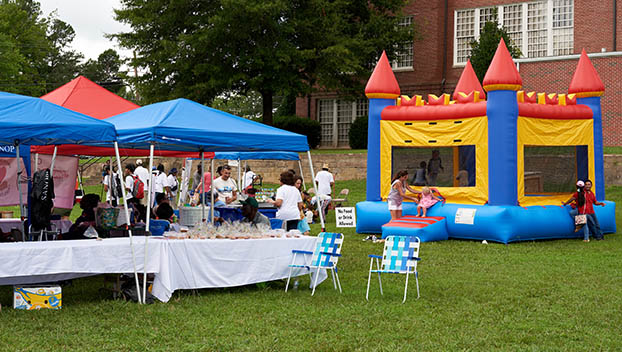Schools ask for nearly $795K
Published 2:32 pm Wednesday, April 5, 2017

- Charles Berkley
The Lunenburg County School Board is asking county supervisors for nearly $795,000 more in funding for its fiscal year (FY) 2017-18 budget.
The request came during the Lunenburg County Board of Supervisors’ first budget work session Thursday night.
Trending
During the meeting, members of the board of supervisors and the school board came together, discussing budget needs, revenues and expenditures.
The school board requested $794,785 more than what the board agreed to allocated in local funds for the current fiscal year.
“We presented a very open budget that was very transparent to the board of supervisors and the public that was there,” Lunenburg County Division Superintendent Charles Berkley said. “The board asked us to be sure a year ago to be very transparent with budget situations, and we opened it up and told them the bare bones minimum that we needed to continue to operate the school system in an efficient manner.”
According to the budget request, the school board estimates its projected general fund revenue will be $14.6 million. Its expenditures, school officials project, will be $15.4 million, leaving a $794,785 deficit. The school board is asking the board of supervisors to allocate the money needed to fill the gap.
Berkley presented the school board’s budget in a PowerPoint presentation. The added funding, Berkley said, would help the school board reach its goals of offering a high-quality instruction, having high-quality professionals, providing a safe and
orderly working environment, having innovative and cutting-edge technology and keeping families and the community engaged.
The major factors in the budget increase, according to Berkley, are state-mandated salary and benefit changes, and changes in operation and maintenance, transportation and instruction.
According to information, the state is requiring a two-percent salary adjustment for school employees beginning December. The school board, however, is looking to increase employee salaries early. In addition, the state is requiring a state retirement rate increase from 14.66 percent to 16.32 percent, state group life rate increase, state retiree health care credit increase, and a health insurance rate increase. According to school officials, additional costs will total just over $766,000.
The school board is also looking to replace some school buses ($77,000) and replace 10 HVAC Units ($100,000), as well as provide their teachers and custodians with stipends for supplies.
By category, the school board projects expenditures of $10.76 million for instructional costs, $843,715 for administration/attendance and health, $1 million for transportation fees and $1.5 million in operation and maintenance. Other charges include school nutrition services, facilities, debts/transfers and technology.
With the special revenue fund, textbook fund and school nutrition fund added to the general fund expenditures, the total expenditures for the 2017-18 fiscal year sits at $17.7 million — a 3.6 percent increase from the current fiscal year.
Board of Supervisors’ Chairman Charles Slayton said in increase of almost $795,000 is not reachable, especially with other community organizations asking for increases in funding.
“There’s no way we can fund (that),” he said after the meeting. “I would like to see teachers get their two percent raise, but … there needs to be give on both sides,” Slayton said. “A one-cent tax increase brings in $85,000. The school board is asking for $790,000. You can’t raise taxes but so much. You can’t put a big tax increase on the citizens (of Lunenburg) because they can’t pay it.”
District One School Board Representative Barry Carnes said if the requested funds were not met, cuts may have to be made. Some of the possible losses include removal of the school bus purchase and HVAC replacements, cuts to spending to Southside Virginia Community College for their gifted, dual enrollment and other programs and the employees having to assume an even greater health care cost, and thus less take-home pay. Cutting of instructional elective programs is another possibility, he said.
Carnes, however, said he is very against cuts to the school programs, vouching for cuts to purchases of the buses and HVAC units before looking at other cuts.
“The first priority for school board members is the welfare of the students, both academically and physically,” Carnes said. “The next would be the teachers and everything else falls under that.”



